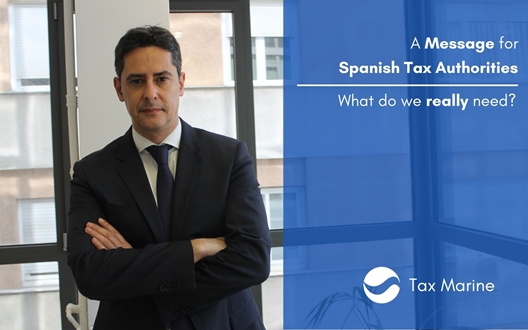We consider that there are at least four key points that Spanish tax authorities have the capacity to address and that would allow a vigorous boost to the superyacht industry in Spain.
1. Matriculation Tax
In 2013, an amendment of the Spanish Excise Duty Law, made available to commercial yachts, regardless of their length, an exemption from the Spanish matriculation tax. However, the legal provision establishing this tax benefit stipulates that it won't be possible to hire the yacht to a related party, such as its ultimate beneficial owner, if this person is a resident or holder of establishments in Spain. While it seems that the limitation set out for Spanish residents is a sufficient measure to prevent potential structures seeking exclusively the tax exemption, at the same time limiting the use by Spanish residents, the prohibition of use by related parties holders of establishments in Spain, might lead to situations where an ultimate beneficial owner who has business interests in Spain cannot use its yacht, whereas another with no ties with Spain could. This is in principle a nonsensical limitation that only prevents superyacht charter activity and/or investment in Spain.
2. Neutral import for commercial yachts
France and Italy have in place import mechanisms whereby commercial yachts can be imported, under certain conditions, without an actual VAT disbursement. The legal basis for these schemes is that VAT on commercial yachts should be neutral, as a fundamental principle applicable to any other commercial good. If Spain could establish a similar mechanism, it might attract more yachts to our country in order to carry out this procedure, instead of missing all these yachts which currently head to different jurisdictions in order to complete those procedures. If Spain became the first port of call for these yachts in order to carry out this import process, it could take advantage of that technical stop to provide additional services related to the preparation of the vessels for the summer season, which would contribute significantly to the local economy. Spain’s privileged geographical position as a corridor from the Atlantic is unbeatable in this respect.
3. Taxation of charter Income
Unlike any other EU country, the current approach of the Spanish tax agency to yacht chartering is that, in absence of a double taxation treaty in place between Spain and the jurisdiction where the yacht owning entity is established, the Spanish-sourced income is subject, in addition to VAT, to a 24% withholding tax (charter income tax). This is the case for yachts owned through many of the most commonly used offshore jurisdictions, such as the Cayman Islands, the British Virgin Islands, Guernsey, the Isle of Man, St. Vincent etc. If Spain could operate on the same basis as the rest of the surrounding countries, where chartering activities are deemed to be activities related to yachts engaged in international navigation, and therefore exempt from income tax in the country where the charter takes place (unless the owning company is effectively established there by means of a branch or subsidiary), this would increase Spanish competitiveness
4. YET – Yachts Engaged in Trade
The Yacht Engaged in Trade (YET) Scheme is a mechanism adopted by some flag states whereby commercially compliant private yachts are authorized to charter for up to a certain number of days per calendar year. This regime is particularly attractive for yachts under Temporary Admission, not imported or in free circulation. This mechanism is currently in place in France and Monaco, and it is expected to be operational in Croatia and Italy shortly. Just after the approval of the new UCC, Spanish customs authorities seemed to be ready to accept this option as valid for chartering in Spain. That would have meant significant VAT revenue for the Spanish economy. Incomprehensibly, a tax ruling dating back to 2018 put an end to this possibility based on an obsolete regulation from 1985.






